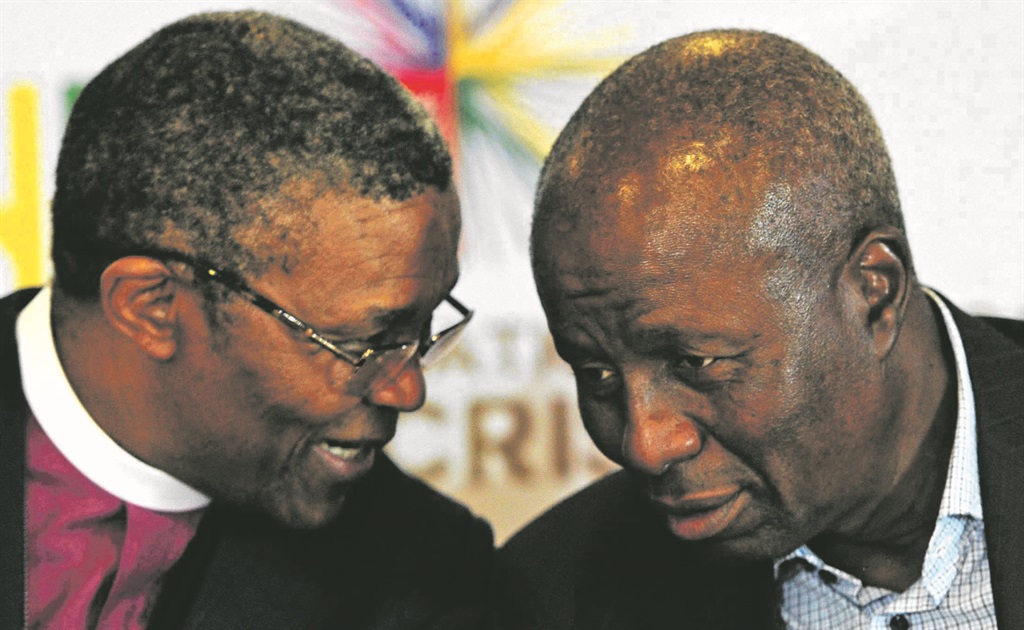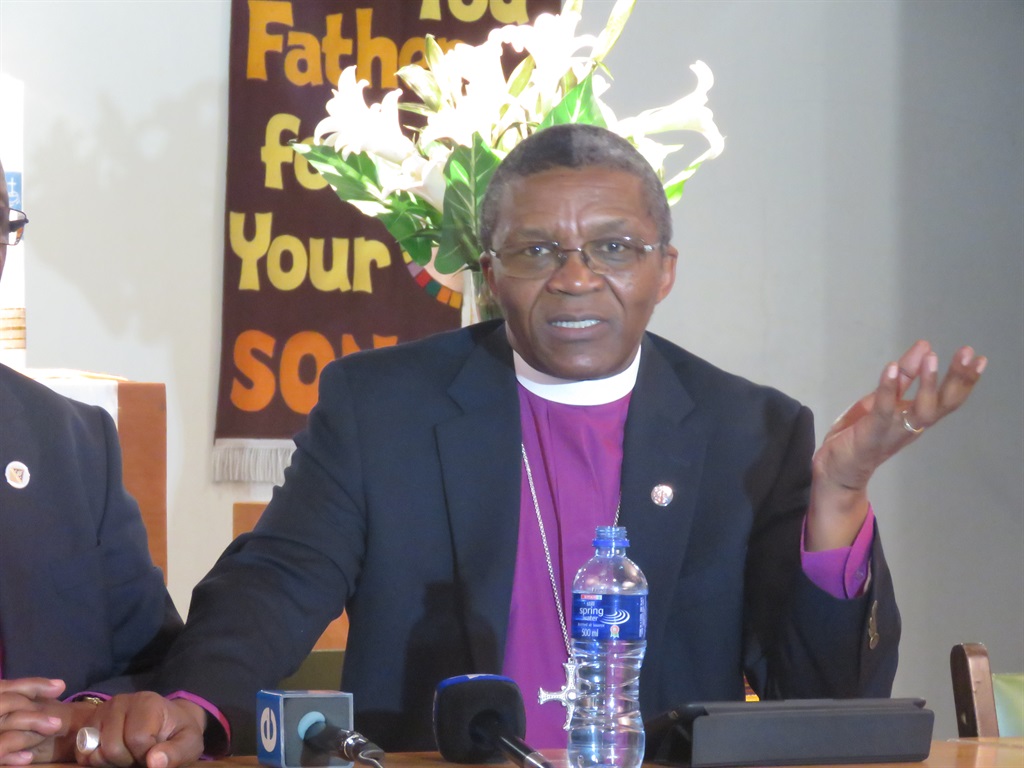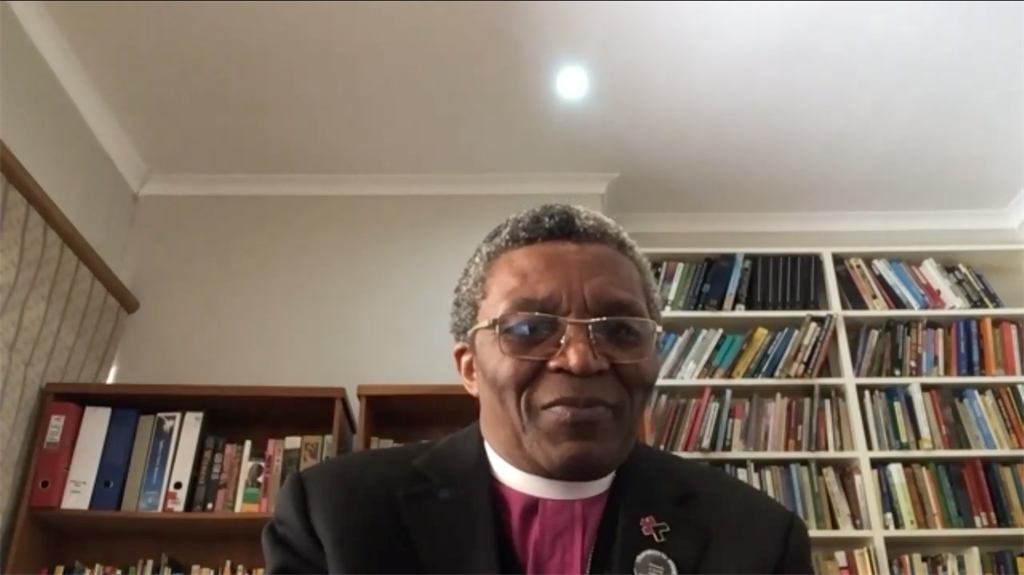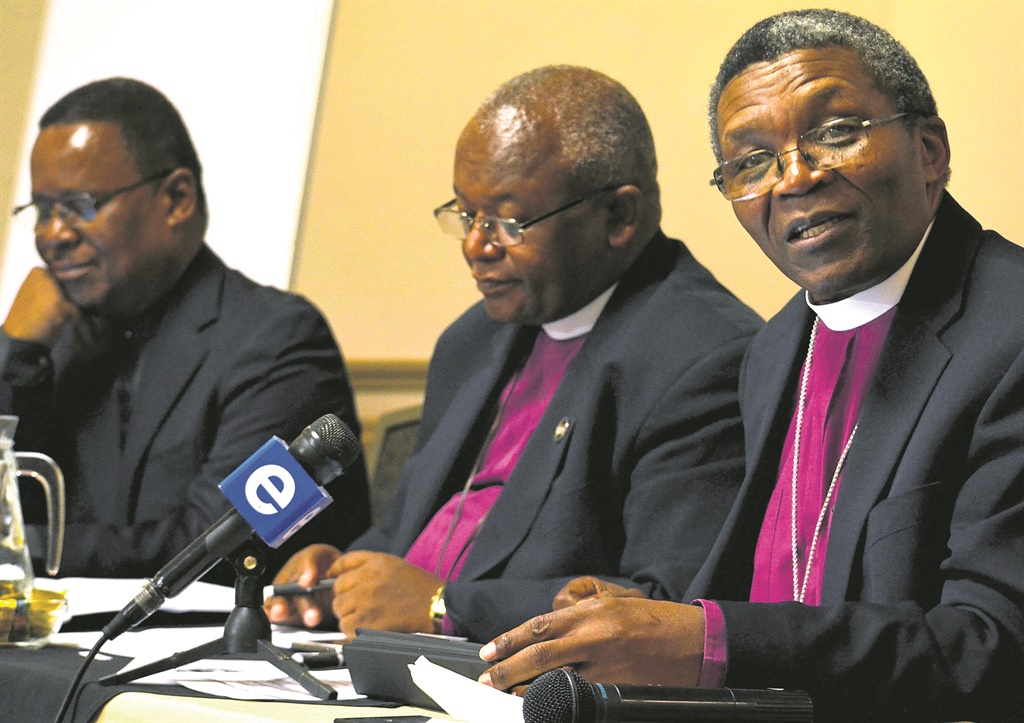Bishop Malusi Mpumlwana believes there has been “no compliance” with the Covid-19 lockdown hygiene regulations, that the country’s economy is at the same place it was near the end of apartheid, and that white South Africans have to do more to bring about reconciliation.
The new chairperson of the ministerial advisory committee on social behavioural change, Bishop Malusi Mpumlwana, says the South African government does not have the authority to tell people what behaviours they should change.
“Does government have the capacity power? Or even, should I say, the authority to tell you what to change,” Mpumlwana asks laughing.
“No.”
Because no government can tell me where we should wash our hands in the house…No government can legislate how you must wash your hands after the funeral.
Bishop Malusi Mpumlwana
Instead, 68-year-old Mpumlwana says the government’s role should be to persuade everyday South Africans to adopt hygienic practices to slow down the spread of the coronavirus in the country.
“All government should do is to say: ‘There is the Covid virus. And here’s how it spreads, and these are the things you must do to prevent it: You must use a mask; you must keep a distance; no handshakes’.
READ | Here are the new rules for hair cuts, manicures and tattoos
“All those things that will prevent the spread. We know them. But how do we make those habitual in our environments?”
Speaking to News24 from his home in Brooklyn, Johannesburg, in a virtual interview to avoid unnecessary social contact, in line with the state’s lockdown regulations, Mpumlwana says he misses visiting his grandchildren most during the national lockdown.
In his study, rows and rows of books can be seen – stacked as high as the ceiling – including the autobiography of late president Nelson Mandela, Long Walk to Freedom.



South African Council of Churches President, Bishop Malusi Mpumlwana briefs the media following a meeting with President Cyril Ramaphosa and religious leaders of diverse communities ahead of the lockdown
Gallo Images Phill Magakoe, Gallo Images
Dressed in his church attire, Mpumlwana says when he was first asked to chair the ministerial advisory committee on social behavioural change last weekend, he felt “uncomfortable” as he didn’t want it to overshadow his work as general secretary of the South African Council of Churches (SACC).
Committee
However, after he spoke to other church leaders, and when Health Minister Zweli Mkhize phoned him again on Monday, he accepted the role – a day before the committee was announced.
The 41-person committee, which includes representatives of the National Economic Development and Labour Council (Nedlac), the Zion Christian Church (ZCC), and public law centre, Section 27, is scheduled to have their first meeting next week.
Mpumlwana says it is clear that, in the general society today, there is “no compliance” with the necessary social hygienic behaviours as people walk around without masks, hugging each other, and not washing hands.
Everybody just getting on with their business as if nothing has changed.
Bishop Malusi Mpumlwana
He said the role of the ministerial advisory committee is, therefore, to come up with social behaviours that can be implemented in the areas represented on the committee itself, without necessarily requiring state interventions.
“Now what is it going to take to persuade those people that this is not going to be a government story? It’s not going to be a government message. It’s not going to be police or soldiers doing that – it’s going to be persuasion by the people others listen to.”



Bishop Malusi Mpumlwana and Justice Dikgang Moseneke are members of the National Education Crisis Forum in 2016.
Mpumlwana says he particularly wants to assist the disabled after he recently received a message from a blind individual, who said people have “no idea” how terrible the lockdown is.
He says the message read: “You say I must be distant, but I don’t even know how distant you are from me. How do I protect myself? You say people must be coughing into their elbow, and that’s exactly where I hold on when somebody is leading me. And I must touch surfaces to know where I am.”
Mpumlwana says, shaking his head:
That is a reality, we have not even begun to think about.
Bishop Malusi Mpumlwana
When asked whether he supported the national lockdown, Mpumlwana says the South African government has certainly been very educational, joking that it’s the reason why the interview is taking place over a video call.
“So they’ve changed a lot of things, but that has helped us to begin to see where else we should change behaviour. Now, we have to begin to think about it in light of what we know, what other things should we be looking at. That’s really what the role of the ministerial committee is.”
Members
Mpumlwana says even before the health minister phoned, the SACC, representing over 30 church denominations in South Africa, with collectively over 22 million members, was already hard at work devising plans on how to slow down the spread Covid-19 when churches reopen.
He says the council realised that, when the virus spiked after churches reopened, that people are going to blame churches and the SACC wanted to avoid it.
Even prophet Paseka “Mboro” Motsoeneng phoned to say he is concerned that churches would be blamed and asked the SACC to help.



Secretary-general of the South African Council of Churches, Bishop Malusi Mpumlwana.
The SACC’s aim was, therefore, to convince half of its congregations’ members, around 11 million, to adopt social hygiene behaviours, Mpumlwana says.
“We wanted to make sure that every place of worship is a megaphone for the message, so that the health protocols are observed, and that people change their social behaviour accordingly.”
And if half of the South Africans, not under the SACC’s fold, also adopt the behaviours, nearly half of the country’s population would practice hygiene behaviours – the hope is that it would be enough to place social pressure on the remainder to also adopt it.
Of the heavy criticism churches received that it would help spread the coronavirus after they were allowed to reopen, Mpumlwana says those who criticised are not the same people who need those ministries.
They are able to take care of themselves.”
Bishop Malusi Mpumlwana
“But if you are in a rural village, and when the country is opening up for you to go to work, and there is no work for you. And for months you have had no spiritual support. And your minister cannot come to you nor can you go to them. It is different for those people.”
READ | Covid-19: African Union launches medical supplies platform
Mpumlwana, a bishop at the Ethiopian Episcopal Church, was born in the rural Eastern Cape. He says he studied theology to ask what it means for a black South African under apartheid to be created in the image of God.
“Does it mean that black people, under apartheid, either had to be subservient to this and let it happen to them, just like many women are made to do under abusive men, or do they say, ‘I will change this’.”
He says he met anti-apartheid activist Steve Biko – who died after being beaten in police custody in 1977 – at the then University of Natal’s medical school. Together, alongside many other activists, they worked on the Black Consciousness Movement in South Africa.
Black Consciousness was never a racist principle.
Bishop Malusi Mpumlwana
“It is a principle that says, in an environment where the blacks are supposed to be less than human, and you’re white, you’re supposed to be superhuman, that there has to be an equalisation.”
He was 21 when he received his first banning order from the apartheid government, for speaking out against the oppressive regime, and was thereafter tortured “very badly” by security police.
Mpumlwana says he didn’t know of any black person who was not involved in the Black Consciousness Movement under apartheid, as it was a part of their reality.



Bishop Malusi Mpumlwana during his interview with News24.
Asked about the role of violence in changing apartheid, similar to the violence being used in the United States against police brutality, Mpumlwana says violence does not start with the protests, “it starts with the system”.
In the same breath, Mpumlwana says South Africa today has an economy of an “excluded majority” – and he hopes that the Covid-19 pandemic provides the opportunity to change the current economic system.
He said the post-apartheid government, which he would not mention by name, had failed to transform the economy to include the majority.
The 1994 compromise, where a “social agreement” was reached to have white South Africans retain their economic power, to include a small black elite, and to give social grants to the rest of the country remains the reality today, Mpumlwana says.
That’s exactly why apartheid collapsed, among other things, that it was designed for the minority – it couldn’t survive. We were right set on the same place, because of the kind of compromise of 1994.
Bishop Malusi Mpumlwana
Today, Mpumlwana is joined by the Afrikaans Dutch Reformed Church, who once used religion to justify apartheid, on the SACC to work towards social and economic justice, and national reconciliation.
He says the SACC had no choice but to welcome the Dutch Reformed Church into the organisation because Christ’s principle is a principle of reconciliation, and the church has to be a church of love.
However, he says, outside of the church, white people need to do more to bring about true reconciliation in South Africa.
“They must spend less time to sympathise with us; they must spend more time changing their society.”



Reverend Frank Chikane, Bishop Zipho Siwa and Bishop Malusi Mpumlwana at a meeting with student representatives in 2016.
Asked what he learnt about what it means for a black South African under apartheid to be created in the image of God – the question that first led him to theology – Mpumlwana says he discovered that being human means to be holy.
Therefore, he says what the apartheid government did was to take away black South Africans’ holiness because they took away their freedom and their humanity.
The abuse of power, all of these things, got me to say in almost an evangelical commitment to defend the image of God in black people in our society.
Bishop Malusi Mpumlwana
At the end of the hour and a half interview, Mpumlwana interrupts the conversation to add that, in simple Christian terms, the apartheid government and white South Africans also lost their humanity because they oppressed black South Africans.
“If I allowed my own humanity to be lost, they would never recover theirs. It needs the oppressed black people’s humanity to recover, to recover the oppressor’s humanity, but we need to have a willingness for that,” Mpumlwana says in a serious tone, before taking a breath.
“And my concern is whether South African whites even recognise that need. Where their privilege is so second nature that they don’t know where it comes from,” he says.
“I hope while we’re still alive, that reckoning would come.”

